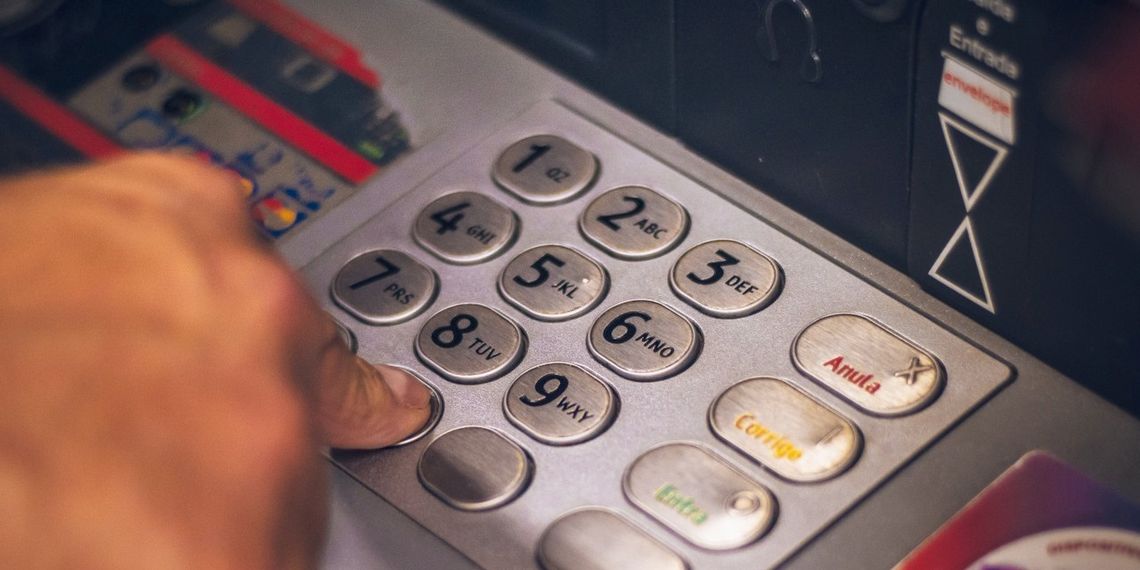If Your PIN is on This List, Your Money is at Risk
There are PIN codes and there are bad PIN codes - here is a list of the most popular and therefore least secure personal identification numbers. It's worth knowing what rules to follow when choosing a PIN so as not to make the job of fraudsters easier.

It turns out that PIN codes that we use when authenticating at an ATM, for example, are not made equal. Some are easier to guess, while others are just the opposite. Here are two TOP10 PIN code lists - the ones we should avoid, and comparably secure ones. Which side of the Force is your code on?
Do you have a strong or weak PIN?
DataGenetics blog analyst and former Microsoft and Facebook employee Nick Berry analyzed all combinations of the 4-digit PIN codes. He used a database of previously disclosed numbers for this purpose. We start with PINs that we should avoid at all costs, as they are the most common (the percentages represent their popularity):
The most popular PINs:
- 1: 1234 - 10,713%
- 2: 1111 - 6,016%
- 3: 0000 - 1,881%
- 4: 1212 - 1,197%
- 5: 7777 - 0,745%
- 6: 1004 - 0,616%
- 7: 2000 - 0,613%
- 8: 4444 - 0,526%
- 9: 2222 - 0,516%
- 10: 6969 - 0,512%
It's unbelievable that one in ten people set their security number to "1234." It's as if we left our apartment door open at night. And now it's the turn of those least "easy" PINs:
The least common PINs:
- 1: 8068 - 0,000744%
- 2: 8093 - 0,000893%
- 3: 9629 - 0,000953%
- 4: 6835 - 0,000953%
- 5: 7637 - 0,000953%
- 6: 0738 - 0,000982%
- 7: 8398 - 0,000982%
- 8: 6793 - 0,001012%
- 9: 9480 - 0,001042%
- 10: 8957 - 0,001042%
However, before we all start changing the number to "8068", it's worth realizing that it could then end up on that first list, and that's a valuable hint for cybercriminals. What PIN should be chosen, then, if it is better not to use the "green" list? The specialist suggests what rules govern PIN codes. It is important that the number be fairly random, the individual digits did not show a relationship with their neighbors. Do not use self-characterizing numbers, such as birthdays or, even worse, such as the end of your car plate number.
It is also worth looking at the keypad of the phone and ATM. Nick Berry describes the curious case of the PIN "2580," which appears to be random, but is nevertheless high at number 22 of the most chosen numbers. Why is this the case? It can be easily explained by looking at the numeric keypad. Seemingly unrelated digits form a straight line on it. Such physically convenient combinations are better avoided, as they are popular and thus easy to guess. Do you also try to choose safe numbers? Or do you not attach importance to it? Write in the comments.
- Ready or Not Devs Reportedly Lose over 2M Files to Hackers
- Phishing in PoE Led Players Astray. Devs Respond and Warn Against Suspicious Links
- Is Space Marine 2 Always Online? Can You Play Offline? Explained
- Issues with Steam Guard code? We will help you
- PoE 2 player accounts target of mysterious hack. Devs at GGG released new details